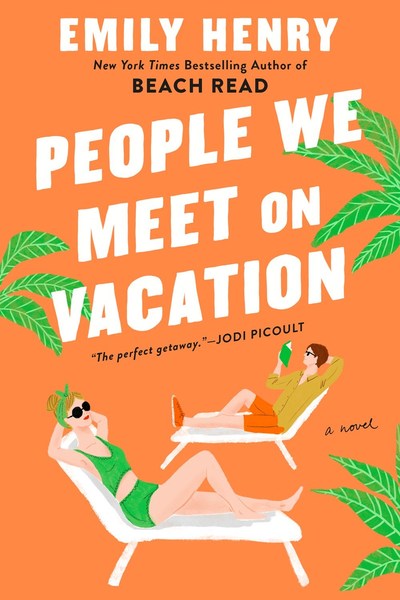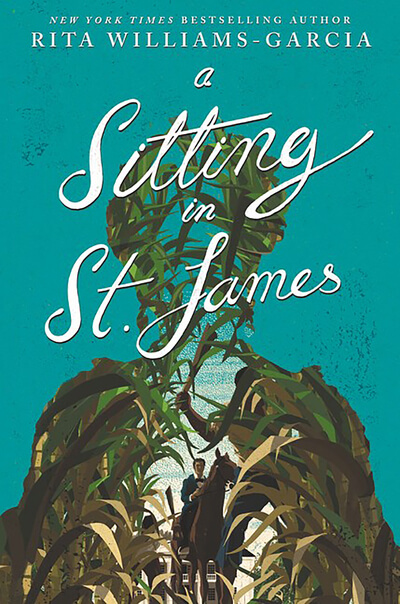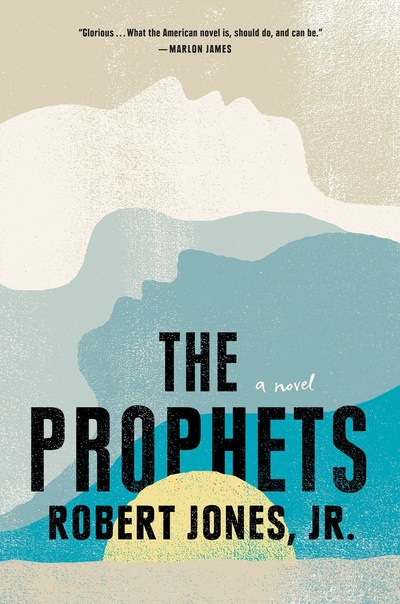Emily Henry’s People We Meet on Vacation is an inspired and achingly romantic reimagining of Nora Ephron’s beloved rom-com When Harry Met Sally, which famously questioned whether men and women (heterosexual pairings specifically) can ever truly be just friends. And the answer, then and now, is . . . probably not if they act like these characters do.
Like Ephron and Jane Austen before her, Emily Henry paints a specific and nuanced picture of first impressions gone perfectly wrong in a prelude to a relationship that is nonetheless incredibly right. When Alex meets Poppy during the first night of orientation at the University of Chicago, neither one is particularly impressed. He is wearing khakis; she wears what look to him like a ridiculous costume. Alex quickly sizes Poppy up, reacting to her “neon orange and pink floral jumpsuit from the early seventies” with skepticism and disapproval. They’re sure they have little in common apart from “the fact that we hate each other’s clothes.” But it takes just one more meeting—a shared ride home to their mutual hometown in Ohio over break—for an enduring mutual fascination, fueled by those same differences, to firmly take hold.
The rest is the stuff of legend or infamy, depending on your vantage point. From the perspective of Alex’s long-term, long-suffering, on-again, off-again girlfriend, Sarah, Poppy’s connection with Alex hangs over her own relationship with him like a constant threat—Chekov’s unresolved sexual tension. From the perspectives of Alex and Poppy, who are deeply committed to denying their palpable physical attraction to each other, the two are devoted best friends, almost like siblings: 95% platonic and just a tiny bit “what if.” But that pesky 5% is a killer. Poppy is continually surprised when it rears its head.
Even worse, Poppy, from whose perspective the story is told, misguidedly but truly believes she’s alone in this torture. Alex is a buttoned up English major-turned-high school teacher and a surrogate father to his younger brothers. Poppy is a freewheeling former weirdo-turned-travel writer and internet personality who’s determined to make up the time she lost to bullies when she was young. Both are seemingly committed to the idea that someone like him could never want someone like her and vice versa.
Partners come and go, but for over a decade Alex and Poppy keep in close touch and continue the ritual of an annual summer vacation. The first years are lean ones: She blogs about her travels; he goes to graduate school to get an MFA in creative writing and then a Ph.D. in literature. They save and scrimp and take on extra jobs to fund their budget adventures. Eventually Alex returns to Ohio to teach, and Poppy secures a dream job at a glamorous travel magazine called Rest and Relaxation (a thinly veiled version of aspirational publications like Travel + Leisure). After that, the vacation locales go upscale: a villa in Tuscany, high-end European hotels. Though the style of travel evolves, Alex and Poppy’s devotion—their heartfelt intrigue and obsession with each other and the unspoken attraction that pulls them together like magnets wherever they roam—never changes.
In When Harry Met Sally, Harry claims this type of close, sustained platonic friendship can’t be done, at least not in the way Alex and Poppy are doing it: “What I’m saying is . . . that men and women can’t be friends because the sex part always gets in the way.” The gorgeously written, delightfully original People We Meet on Vacation will not do much to contest that claim. It’s a wonderful tribute that puts Henry firmly on the path to becoming the millennial Nora Ephron.


















